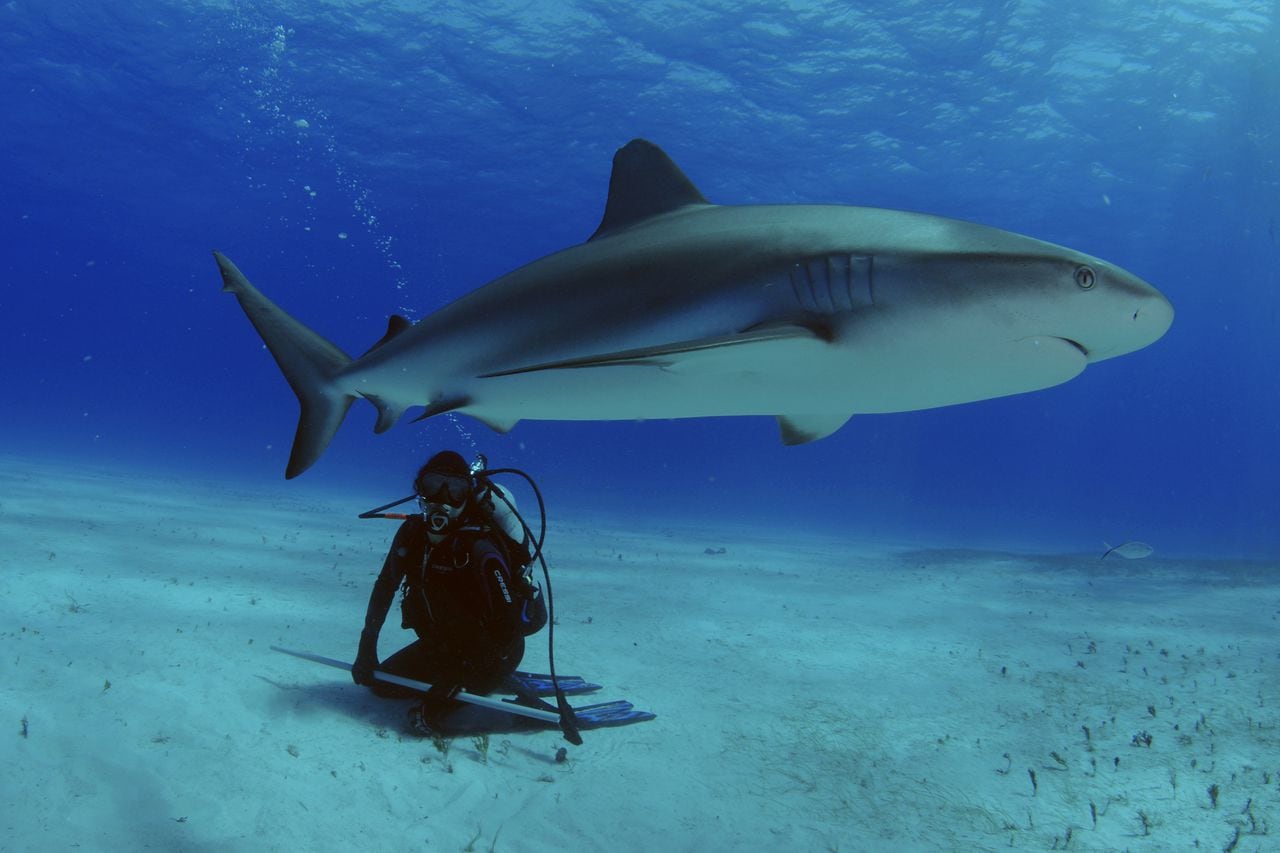Bahamas shark attack kills Boston woman
A Massachusetts woman was killed by a shark Monday morning in the Bahamas, police said.
The 44-year-old Bostonian was paddle boarding with a male relative away from the shore at a resort in western New Providence around 11:15 a.m. “when she was bitten by a shark,” the Royal Bahamas Police Force said in a statement to the Miami Herald.
A lifeguard on duty at the resort, whom police did not name, witnessed the attack and went out in a rescue boat, pulling the woman and man on board, the statement read.
Once on board, lifeguards performed CPR as the vessel headed back to the beach, but the woman “suffered significant trauma to the right side of her body,” police said, adding that she was pronounced dead at the scene.
Police have not named the woman pending notification of her next of kin, according to the statement.
“She was examined on scene by emergency medical technicians, who concluded that she showed no vital signs of life,” police said.
It was not immediately clear what type of shark bit the woman, nor its size.
According to the Florida Museum of Natural History’s International Shark Attack File, prior to the woman’s death, there have been 32 documented unprovoked shark bites in the Bahamas since 1749.
At least 33 confirmed unprovoked shark attacks have been reported in the Bahamas since 1580, with the island ranking ninth worldwide, according to the file.
Gavin Naylor, program director of the International Shark Attack File in Florida, said in an interview that there have been a couple of shark-related fatalities reported in the Bahamas in the past five years.
He noted that the Bahamas has a “huge” tourist population, adding that there are a lot of people in the water and a lot of visitors who want to view sharks from a fishing boat or dive with them.
“So the sharks get acclimated, and the animals are a little bit less cautious than they otherwise might be,” he said.
Between 30 to 40 shark species live around the Bahamas, although the Caribbean reef shark, the bull shark, the tiger shark and the black tip shark have the highest bite frequency, Naylor said.
“Usually, it’s an accidental bite. They think it’s something else,” he said. “Once in a while, they’ll actually single out people, and it’s very intentional.”
Fatal shark attacks are rare, with only an average of five to six reported worldwide a year, most of them occurring in Australia, Naylor said. Last year, there were a total of 57 unprovoked bites around the globe, the majority of them in the U.S., according to the International Shark Attack File.
The Nassau Guardian newspaper reported that authorities in the Bahamas are still searching for a German woman who went missing late last month after she was apparently attacked while diving.
Last year, a shark killed a U.S. cruise ship passenger from Pennsylvania who was snorkeling in the northern Bahamas near Green Cay.
Most shark attacks in the Caribbean occur in the Bahamas, although a rare shark attack was reported in the French Caribbean territory of St. Martin three years ago.
_____
©2023 Miami Herald. Visit miamiherald.com. Distributed by Tribune Content Agency, LLC.
